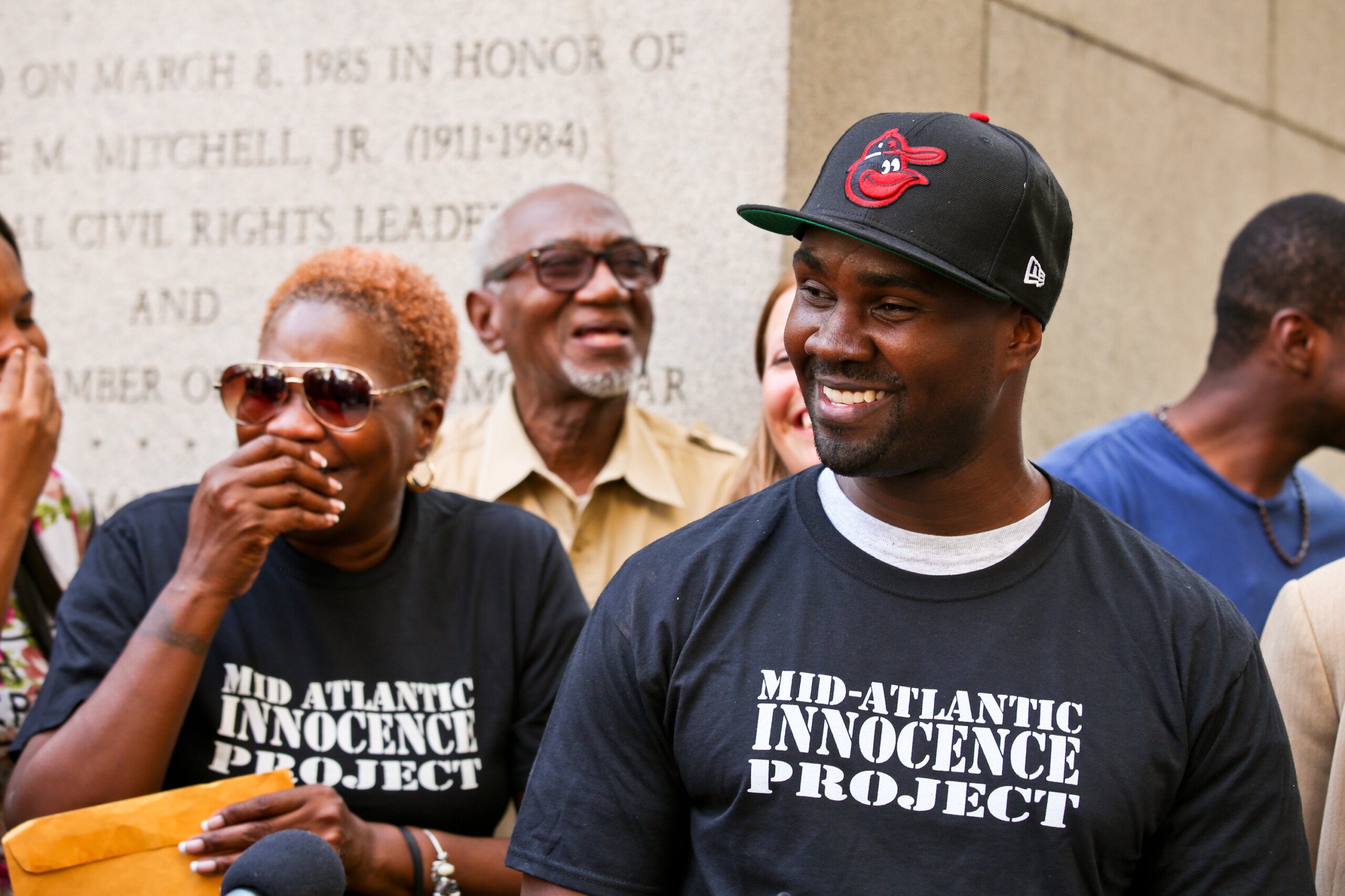Bad Lawyering: Lamar Johnson
At about 2 p.m. on March 26, 2004, 31-year-old Carlos Sawyer was fatally shot three times on at the corner of McElderry Street and Patterson Park Avenue in Baltimore City, Maryland. At least 30 people were present at the time.
Within a day, an informant told police that the gunman was nicknamed “Boo Boo.” When police showed photographs of individuals from the neighborhood to the informant, he picked the photograph of 20-year-old Lamar Johnson. Johnson had been arrested in the past on drug charges, but not convicted. Police then focused on Johnson although his nickname was “Mar,” not “Boo Boo,” and even though they knew of several people who went by “Boo Boo.”
Johnson was charged with first-degree murder, use of a handgun in the commission of a felony, assault, and reckless endangerment. At the time, Sawyer’s family told the police and prosecution that they did not believe Johnson was the gunman.
Johnson was convicted in 2004 of shooting a man several times in broad daylight. No physical evidence connected him to the incident and he had no motive to commit the crime. He became a suspect only when an informant identified the shooter by nickname. Johnson was misidentifed as that person, even though he did not share the nickname. Two teenage eyewitnesses to the crime later identified Johnson as the killer, but their testimony was riddled with problems.
Many of the victim’s family have long believed that Johnson was not the killer. Said one member, “We don’t want to let Carlos’s murder create two tragedies.”

Lamar Johnson went to trial in Baltimore City Circuit Court in October 2005. No physical evidence linked him to the crime.
At trial, the defense called a resident of the neighborhood who testified that earlier on the day of the shooting, he was with Sawyer when Sawyer got into a dispute with a man whom he knew as “Boo Boo.” That argument seemed to end when Sawyer pulled a knife. The witness said he left them after they both seemed to have calmed down. Ten minutes he later heard gunshots and came back to see Sawyer on the ground.
The witness said he immediately went to the nearby home of his niece, whom he knew was involved with Boo Boo. He found Boo Boo in an agitated state and sweating profusely. The witness said that Johnson was not Boo Boo.
The defense attorney also called a neighborhood resident who claimed that she saw the shooting and that Johnson was not the gunman. However, during cross-examination, it became apparent that her testimony was questionable and at one point, she placed Johnson at the scene.
Because that witness’s testimony was so damaging, Johnson’s lawyer, without any preparation, called Johnson to the witness stand. Although Johnson denied involvement in the crime, the prosecution caught him making several inconsistent statements during cross-examination.
During closing argument, Johnson’s counsel apologized to the jury for her performance.
On appeal, Johnson contended that his trial lawyer had provided an inadequate legal defense. The appeal was rejected by the Maryland Court of Appeals, which held that although defense counsel’s performance was deficient, the poor performance had not prejudiced Johnson.
In 2010, the Mid-Atlantic Innocence Project began reinvestigating the case. After several years, three new witnesses were discovered who said that they saw the shooting and that Johnson was not the gunman.
In 2016, the Mid-Atlantic Innocence Project presented their findings to the Baltimore City District Attorney’s conviction integrity unit. During a lengthy re-investigation, a witness told the prosecution that after Johnson had been convicted, he heard the real gunman admit to the shooting. Throughout the process, Sawyer’s family continued to insist that Johnson was innocent. At the conclusion of their investigation, the conviction integrity unit agreed that the evidence pointed to Johnson’s innocence.

On September 18, 2017, the prosecution and Mid-Atlantic Innocence Project filed a joint motion to vacate Lamar Johnson’s convictions. On September 19, 2017, the motion was granted, the charges were dismissed, and Johnson was released. In 2018, Johnson filed a claim with the Maryland Board of Public Works for $1 million in compensation for his wrongful conviction. [National Registry of Exonerations]
The failure of overworked lawyers to investigate, call witnesses or prepare for trial has led to the conviction of innocent people. When a defense lawyer doesn’t do his or her job, the defendant suffers. Shrinking funding and access to resources for public defenders and court-appointed attorneys is only making the problem worse.
